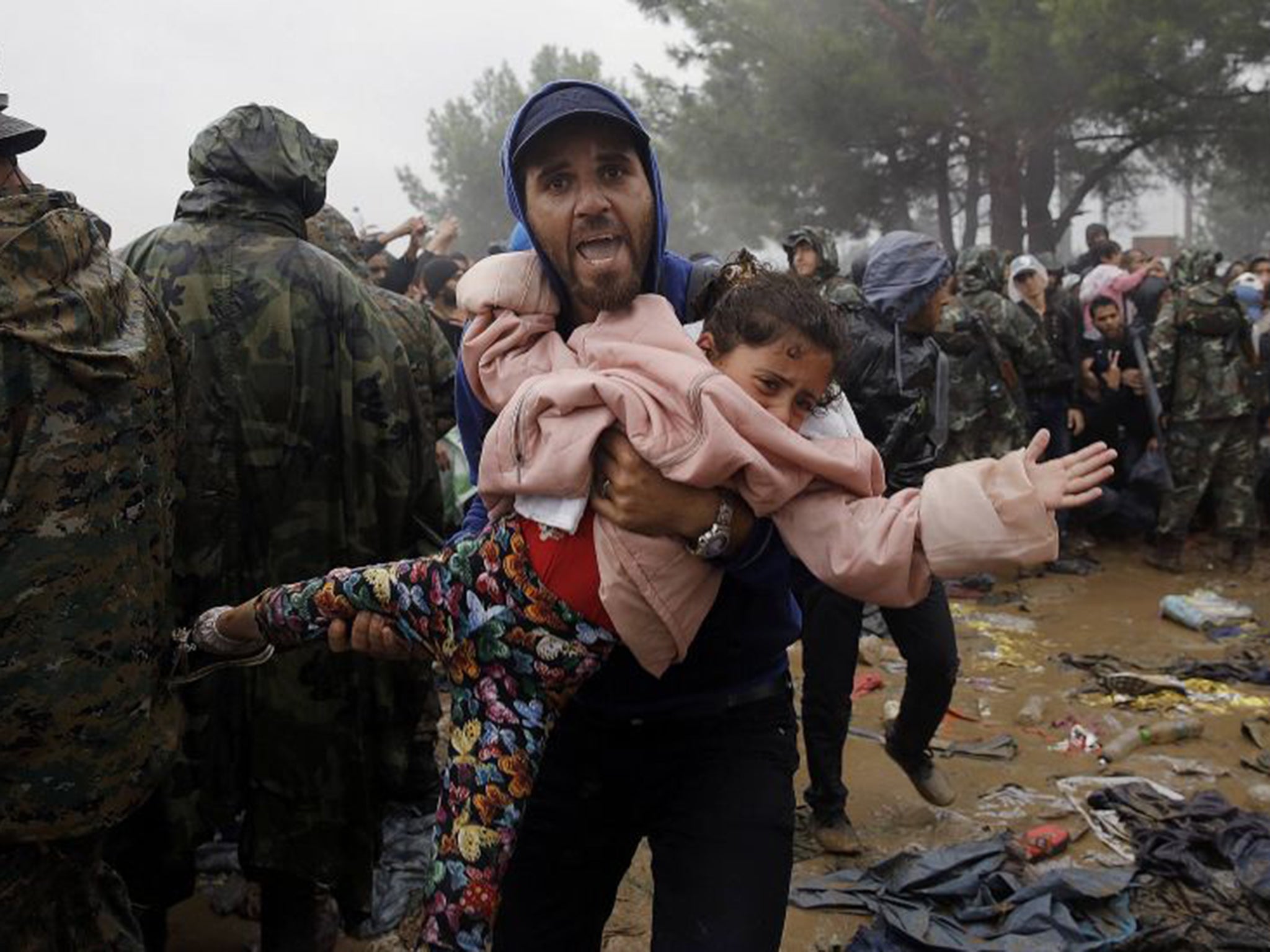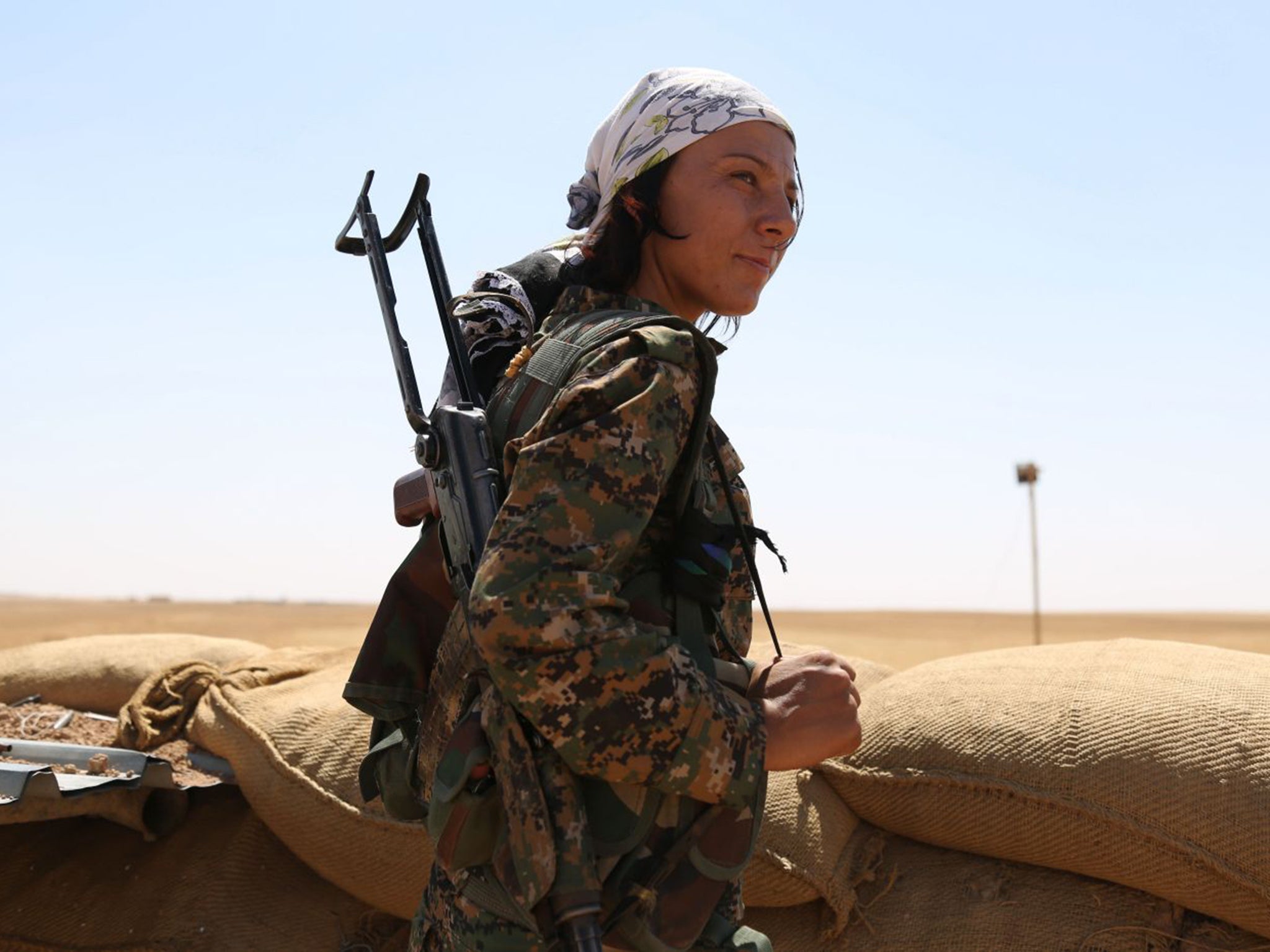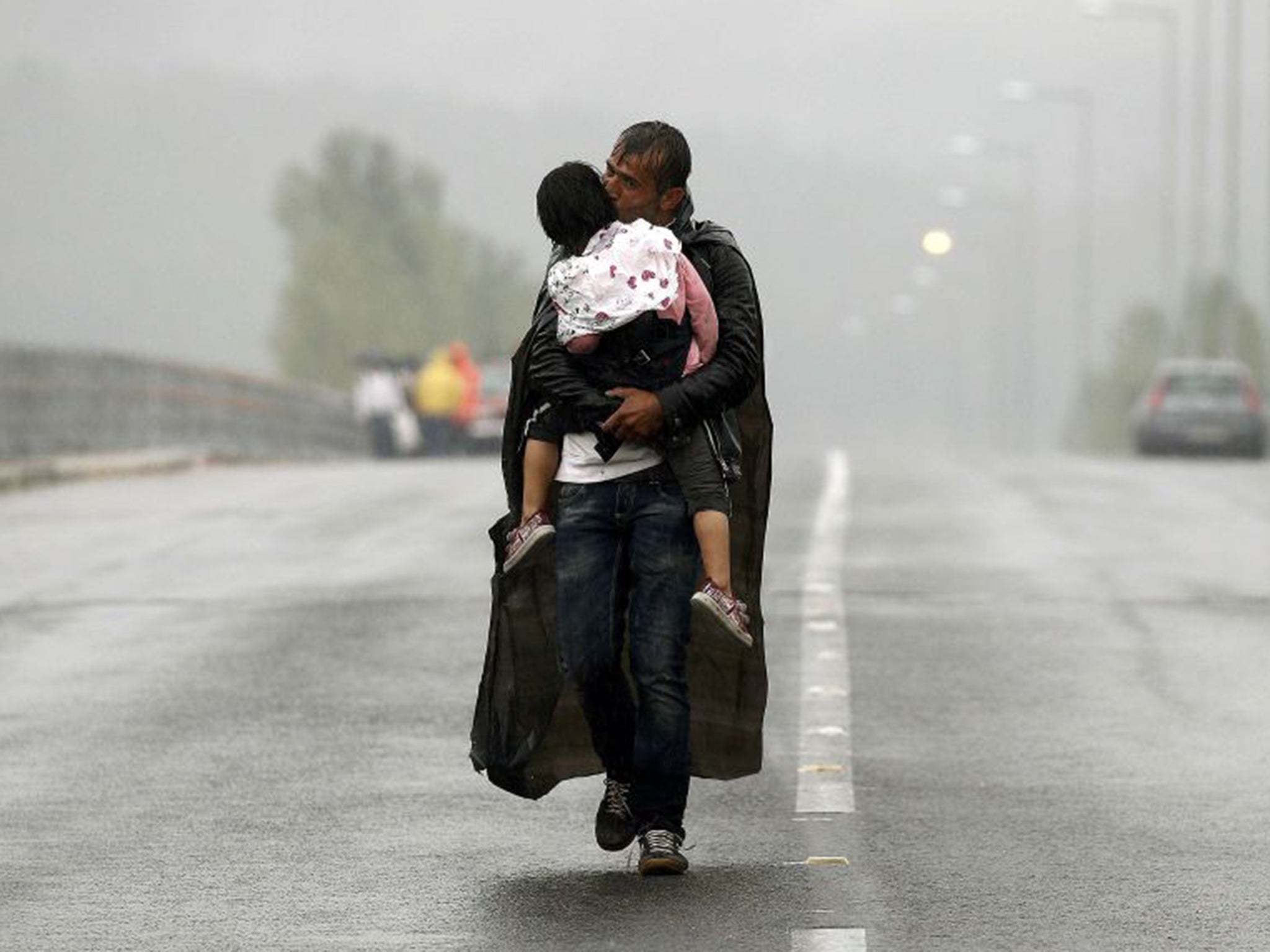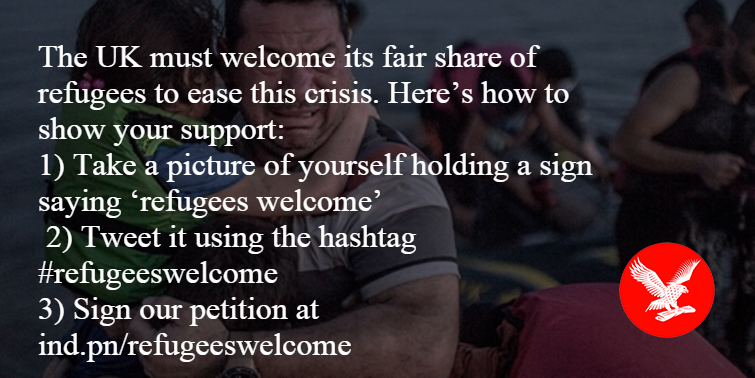Refugee crisis: Cutting Britain's overseas aid to help pay for taking in refugees will exacerbate the problem
Libyan coastguards and people smugglers tell Kim Sengupta why the UK's current policy is doomed to failure

The refugee crisis must be tackled at source: this has been a mantra repeated many times by politicians as accusations and recriminations fly across a Europe divided over how to deal with the thousands of dispossessed people arriving at its shores.
This declaration has come most often from those who are unwilling to take large numbers of refugees into their countries. David Cameron has been among the most vocal; the French Prime Minister Manuel Valls has re-affirmed this was the right course to follow; his Hungarian counterpart, Viktor Orban, is fervent in backing measures which tackle the problem at a distance and keep the foreigners in their homeland.
Most people would, in fact, agree with the premise, at least in theory. Providing stability and prosperity in troubled states would mean that people are less likely to undertake dangerous journeys to escape to a better life. In reality, however, this would mean the West bringing peace to Syria, the main source of the most immediate wave of the dispossessed, and Iraq, from where increasing numbers are following their Syrian neighbours to the West. Peace would also have to be established in Libya, which has become the key conduit for trafficking across the Mediterranean. Furthermore living conditions would have to be dramatically raised in a swathe of other countries, from Bangladesh to Palestine and across sub-Saharan Africa, which is also where many refugees are coming from.

Critics point out that Britain has played a key role creating the violent and unstable conditions in these places with its part in the 2003 invasion of Iraq and the bombing of Libya, for which Mr Cameron was the chief cheerleader. The Prime Minister was also the first one to cry “Assad must go”, just as he had cried “Gaddafi must go” when the Syrian uprising was at its infancy and could, perhaps, have been settled before its descent into savagery.
But where does one go from here? One way to bring stability would be through aid. The government justified diverting some of the aid money to defence (thus making the defence budget look larger than it really is) by maintaining that pre-emptive humanitarian action would prevent strife and the rise of extremism and thus bolster the UK’s defence. But George Osborne has announced that part of the international aid budget will now go towards looking after the additional refugees Britain has been forced to take in. This will, in effect, mean cuts in overseas projects, some in highly vulnerable communities which may slide into instability and violence, creating further refugees.
Having cut aid overseas, the Chancellor is talking war. This week he described the Commons refusal to back military intervention in Syria in 2013 as “one of the worst decisions the House of Commons has ever made”. But the vote on that occasion was about bombing the regime forces and Mr Cameron’s government failed to convince MPs of its case. Indeed, at the time, bombing the regime would have helped Isis and Jabhat al-Nusra, an al-Qaeda affiliate, not the already weakened moderate rebels.
The Government now wants parliament to back extending air strikes against Isis from Iraq to Syria as part of an anti-terrorist operation and also because, it claims, this will stem the flow of refugees. There is no discernible reason why introducing more ordnance into an already extremely violent situation will make it less likely for people to flee.
Defeating Isis would help pave the way for a settlement in the future but, as military commanders past and present have stressed, this would take several years and would not, in any event, be achieved by bombing alone, boots will be needed on the ground.
There are, however, important diplomatic moves taking place, between the US, Russia and Saudi Arabia aimed at arriving at a ceasefire in Syria. These are likely to survive the arrival of Russian military support for President Assad. This, again, will be a long haul, but, in the short term, a “safety zone” is likely to be set up inside Syria across the Turkish frontier, around 60 miles deep, from the east of Aleppo to the Euphrates, free of both Isis and regime forces.
This is meant to be a sanctuary from Isis and regime forces. It will alleviate some of the pressure on Turkey, hosting more than two million refugees, and may slow down the numbers of those trying to head to Europe. But there are already problems; the Americans want the Kurdish militia, YPG, to be part of the force policing the area but Ankara, in conflict with the Kurdish PKK, an ally of the YPG, are adamantly opposed to their presence and they have allowed Turkmen paramilitaries, who have clashed with the Kurds, to set up forward bases.
The prospect of rival militias manning checkpoints would give encouragement to the smugglers, pointed out Abdelhamid (who did not want his full name to be used) in the Turkish border town of Gaziantep. The former engineering student from Binesh in Syria used to smuggle journalists and fighters into Syria before switching to smuggling out refugees. He said: “There are many routes and having different groups as checkpoints means you can play off one against the other. If the security is tight then the numbers may fall for a while because only the rich who can bribe well will get through. But even if the land route becomes difficult, surely people will try to get to Europe by boat.”
Libya, where Muammar Gaddafi kept a lid on human trafficking in return for bribes of billions of euro, is now in a state in disarray. But talks between two rival governments, in Tripoli and Tobruk, are showing signs of progress after stalling for a long time. Senior European officials talk about trying for a Gaddafi-type deal with a new government and sending military advisers to train Libyans to combat Isis, which has taken over Gaddafi’s home town of Sirte, and also the smuggling gangs.

But a power-sharing deal may not happen and since the West does not recognise the Islamist government in Tripoli, there is talk of unilateral military action. Matteo Renzi, the Italian Prime Minister, has spoken about the EU being “in war” with smugglers. Mr Cameron has considered sending British forces to “smash” the smugglers at source.
Officials of the Tripoli government I met recently viewed this with incredulity. In the port of Misrata, Colonel Rida Benissa, the commander of Libya’s coastguard, said his men craved co-operation from the EU, but faced the opposite. “We had just eight patrol boats”, he said. “Four were sent to Italy and impounded because the EU does not recognise our government”.
At the Central Illegal Migrants Unit, Colonel Nasser Hazm talked about his force being outgunned by heavily-armed smuggling gangs allied to militias. He described the EU military plan as “bullshit, there’s no point in blowing up empty boats because they are easy to replace. “What would be the international reaction if they kill refugees in destroying boats?” Shaking his head, he added: “The Europeans want to carry out land operations in Libya we hear? Well, good luck!”
Tomorrow: ‘We are the refugees…’ a collection of personal stories from four people in search of happiness

Join our commenting forum
Join thought-provoking conversations, follow other Independent readers and see their replies
Comments
Bookmark popover
Removed from bookmarks